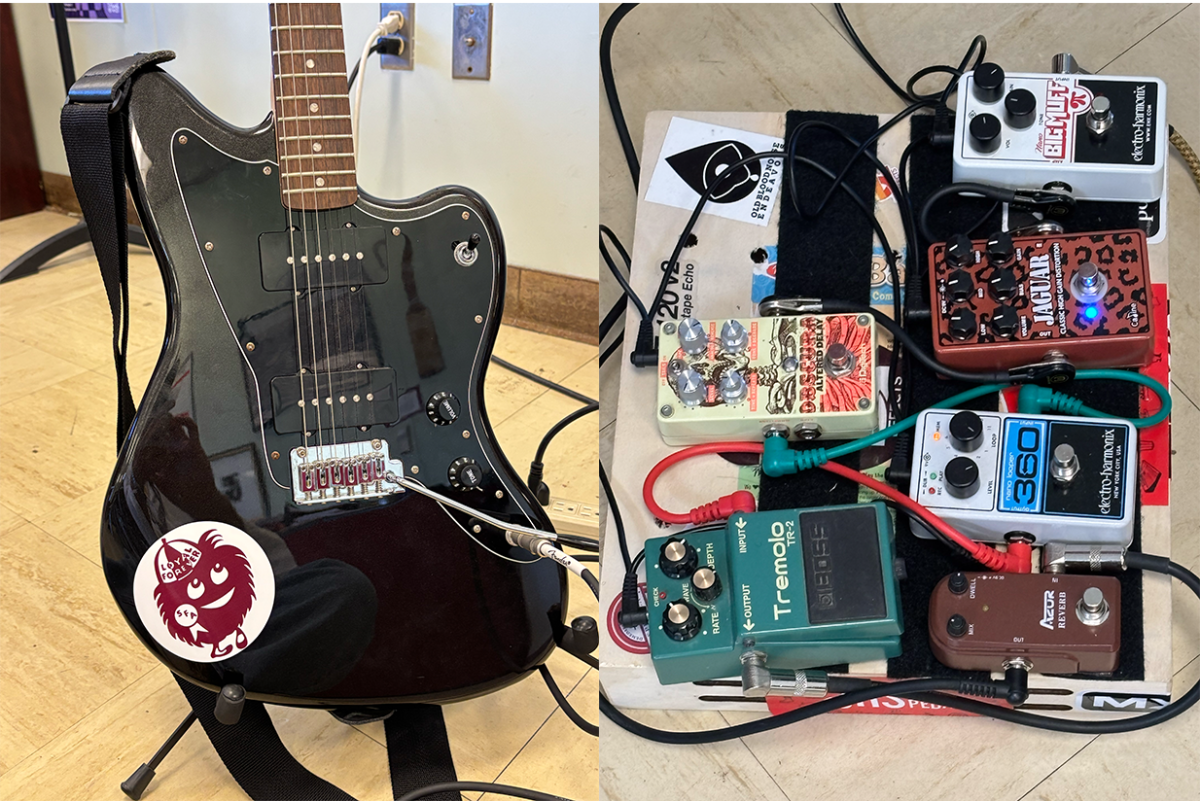The Academy Awards, also known as the Oscars, is an annual event that captivates the nation. The event is a celebration of the American film industry, and is meant to recognize outstanding movies released in the past year, as well as the people that make them.
However, some critics believe that the Oscars are often biased against certain types of nominees. One example is the 2022 Oscar for Best Supporting Actress, which, despite competing against Stephanie Hsu in Everything Everywhere All at Once, Angela Bassett in Black Panther: Wakanda Forever, and Hong Chau in The Whale, was awarded to Jamie Lee Curtis, who was only on screen for 17 minutes in Everything Everywhere All at Once. Many felt that the only white nominee winning the Oscar, specifically for her performance in a film that celebrated asian-american identities, was based on favoritism.
Even historical, progressive wins can feel bittersweet when you realize how long it took for them to happen. For example, in 2019, Parasite was the first non-English film (and as of now, only non-English film) to win Best Picture. In 2022, Michelle Yeoh became the first asian actress to win Best Actress, and the second asian actress to even be nominated; the first, Merle Oberon, hid her heritage and passed as white, knowing that her career would be stunted if she was open about her biracial identity.
The academy doesn’t just have a bias against people, but against certain movies as well. Their dismissal of superhero movies is well known, along with foreign language and animated films, which are both forced into their own separate categories, regardless of genre.
It’s not that surprising that the academy has these issues; after all, despite efforts to become more diverse, it’s still 81% white, and 67% male. With such an overwhelming demographic, it’s no wonder that the academy can come off as an echo chamber.
But what if Oscars were awarded based on public vote? Or in our case, the student body? Would the results be the same with a more diverse voting pool? Well, let’s find out!
For Best Actor, Sebastian Stan won the majority vote for his performance in The Apprentice. The film is an independent biographical drama that chronicles Donald Trump’s career as a real estate businessman in the 1970s to 1980s, as well as his relationship with attorney Roy Cohn. Many critics have cited the acting as the best part of the movie, and Sebastian Stan, who played Trump himself, has been praised especially for his performance of such an intense role.
Best Supporting Actor goes to Kieran Culkin in A Real Pain, a dramedy in which a pair of Jewish-American cousins go on a heritage tour to honor their late grandmother. For many viewers, Culkin stole the show, with some believing that his role as Benji Kaplan is career-defining.
When it comes to Best Actress, Cynthia Erivo has won the vote overwhelmingly for her performance in Wicked. Wicked is an adaptation of the popular Broadway musical of the same name, which stars Elphaba, the Wicked Witch of the West, and her origins as a student at Shiz University. Erivo, who played Elphaba, has received many accolades for both her acting and vocal performance, all while being covered in green paint.
The same goes for her costar, Ariana Grande, who was nominated for her role as Glinda the Good Witch. Grande’s acting skills, musical talent, and comedic timing have all elevated her performance dramatically–pun intended.
All of the nominees for Best Animated Feature Film are incredible, but Inside Out 2 has won a majority’s favor. The sequel to the acclaimed 2015 Pixar film was the first Disney movie to surpass one billion dollars in the box office since Frozen II. It’s been praised for its art direction, characters, and portrayal of mental health, especially for teenagers.
The Oscar for Best Animated Short Film goes to Yuck!, a French short all about childhood and the discovery of love. The film has won several awards at film festivals like the Annecy International Film Festival, Anima – Bruxelles International Animated Film Festival, Lago Film Fest, and Curtas Vila do Conde International Film Festival.
Nosferatu has taken the throne for Best Makeup and Hairstyling. The gothic horror film is a remake of the 1922 movie of the same name, and follows a woman in the 1800s who is forced to pledge herself to a supernatural entity for eternity. It’s been especially praised for its practical effects, which includes its makeup. Bill Skarsgård’s transformation into the monstrous Count Orlok involved six hours of makeup, a 62-piece prosthetic, full scleral contact lenses, and a mustache, and tons of work was done to make him appear both ageless and decayed.
Dune: Part Two has won the vote for Best Production Design, and for good reason. The epic space drama’s set uses brutalist architecture as a reference to how the Soviet Union built in regions it colonized, while also showing differences between different cultures in the film’s world. The film utilized about 35,000 square meters of soundstages, and 40 per cent more sets than than the first movie.
Both Nosferatu and Dune: Part Two are tied for Best Cinematography. While Noseferatu uses desaturated lighting to highlight the darkness of the scenes, Dune: Part Two creates color contrast using experimental techniques that differentiate its many different environments.
Best International Feature Film goes to Brazil’s I’m Still Here, a political biographical drama based on Marcelo Rubens Paiva’s memoir of the same name. The story follows Paiva’s journey to cope with her husband’s disappearance during Brazil’s dictatorship. The movie has been praised for its acting and tone, and many critics have named it the best foreign film of the year.
Best Costuming goes to Wicked, which honors the iconic looks of its source material while also adding its own spin. Over 70 specific craftsmen and artisans were brought on to create all aspects of Wicked’s costuming, and that effort shows in its details. Just one example is Nessarose’s silver slippers, which have a tornado heel design.
Best Directing has been awarded to A Complete Unknown, which is a biographical musical drama centered around the career of Bob Dylan. The film’s director, James Mangold, is known for both his range and his ability to bring out the best in actors. Mangold values transparency and collaboration in his relationships with his actors, which improves the quality of his projects in the long run.
Chosen for Best Documentary Feature Film is No Other Land, which was made by a Palestinian-Israeli collective and shows the destruction of the West Bank’s Masafer Yatta in Palestine. The film also displays the alliance that develops between a Palestinian activist, Basel, and an Israeli journalist, Yuval. The creators of the film describe the movie as an act of resistance on the path to justice amidst the ongoing conflict in the region.
For Best Documentary Short Film, the Oscar goes to The Only Girl in the Orchestra, which tells the story of Orin O’Brien, who in 1966 became the first female musician in the New York Philharmonic. Now recently retired, O’Brien reflects on her remarkable career, while her niece and the film’s director, Molly O’Brien, highlights her aunt’s impact on others in her community.
Best Editing becomes Wicked’s fourth award in this survey. A movie’s editing can be make or break, and Wicked is a perfect example of this. The initial cut of Wicked was four hours long, which editor Myron Kerstein had to condense into two hours and 40 minutes. He succeeds in keeping the editing snappy while also showcasing the complex choreography of the film’s musical numbers, which many other movie musicals have struggled with.
Best Original Song goes to “Like A Bird” from Sing Sing by a landslide. Sing Sing is a prison drama film that’s based on the real-life Rehabilitation Through the Arts program at Sing Sing Maximum Security Prison in New York. The story follows a group of incarcerated men who create theatrical shows through the program.
Chosen for Best Live Action Short Film is I’m Not a Robot, a Dutch science fiction story in which a woman discovers that she might not be human after failing a series of CAPTCHA tests. The film has won awards at Sitges Film Festival, Brussels International Fantastic Film Festival, and Bucheon International Fantastic Film Festival.
The Oscar for Best Adapted Screenplay goes to A Complete Unknown. Critics have praised this film’s writing for maintaining the mystery behind Bob Dylan’s motivations and character, while still being able to keep the story engaging.
Best Original Screenplay goes to The Substance, a body horror film known for its satirical commentary on celebrity culture, as well as its grotesque imagery. In the movie, fading celebrity Elizabeth Sparkle uses a black market drug to create a younger clone of herself that she shares a consciousness with. The film has been praised for its clever writing and horrific visuals.
Best Sound Design, Visual Effects, and Original Score all go to Wicked, making the film a seven-time Oscar winner in this version of the Academy Awards. The score, sound, and visuals all work together to adapt Wicked’s version of Oz extremely well, making these wins well deserved.
Last but certainly not least, the majority of voters believed that The Brutalist should win Best Picture. The Brutalist is an epic period drama which centers around a Hungarian-Jewish Holocaust survivor who immigrates to the United States. The film premiered at the 81st Venice International Film Festival on September 1st, 2024, where it received the Silver Lion award for Best Direction.
So, what can we take away from this? For one, the results of this poll varied wildly from the actual Oscars. Of the 23 total categories, only 8 of the winners lined up in both votes. Notably, Anora and Emilia Pérez, neither of which won any awards in the student survey, won five and two Oscars respectively, with Anora winning Best Picture. Anora is a self-described “Cinderella Story” comedy-drama, which has been both praised and criticized for its portrayal of sex-work. On the other hand, Emilia Pérez has been heavily criticized for having a largely eurocentric cast despite taking place in Mexico, as well as how it handles drug trafficking and its transgender representation.
Secondly, many people believed that certain films had been unfairly snubbed, like Nickel Boys, Babygirl, and Kneecap. This is a common criticism of the Oscars; that the most deserving movies aren’t even nominated in all or any of the categories they excel in.
There are a few conditions we should be aware of that might have influenced the results of the voting. For one, the group that was polled was a small percent of the student body. For the students, there also isn’t an expectation to watch all the nominated films, which can lead to bias. A likely reason for Wicked to have won so many awards is that it was one of the most popular movies of 2024, meaning that if people had only seen one movie on the roster, it was probably Wicked.
That said, these conditions aren’t all that different from the Academy’s. While there are over 9500 voting members of the Academy, they don’t all vote on each category. Additionally, very few Academy members even watch all the movies they’re voting on, usually only seeing about five to ten. In an Entertainment Weekly article, multiple anonymous members admitted to not having watched several of the Best Picture nominees. “I haven’t seen The Substance or I’m Still Here yet.” said one of them. “The first Dune, I couldn’t get through; I’m not rushing for another three hours of Dune.” The Academy functions on an honor system, meaning that there’s no way to verify whether or not someone has actually watched all the films.
As we leave the award season behind us, it’s important to remember that these ceremonies don’t determine the quality of the films they involve. They are merely meant to highlight movies and the people that make them. So if any of the titles that I’ve mentioned interest you–whether they won or not–give them a chance. You never know what gems you may find!









